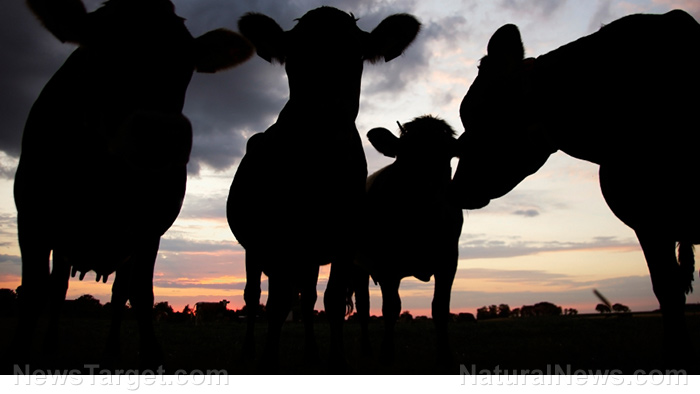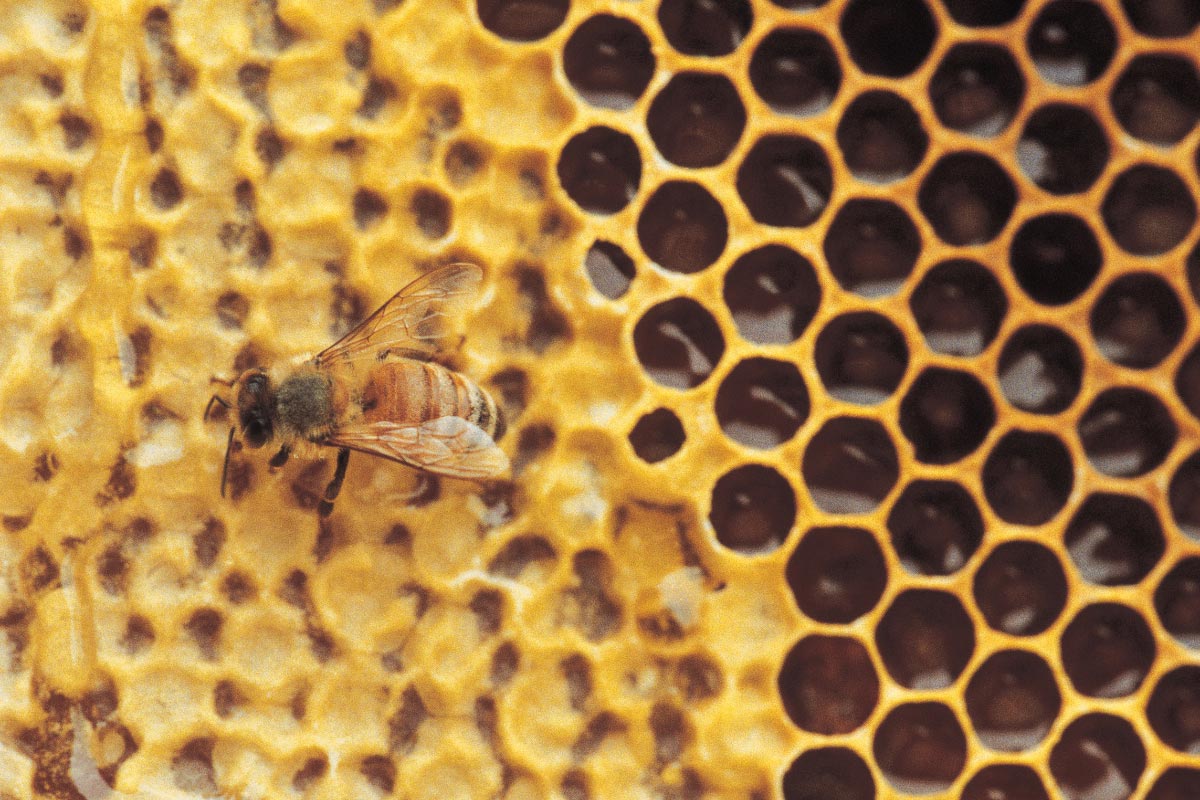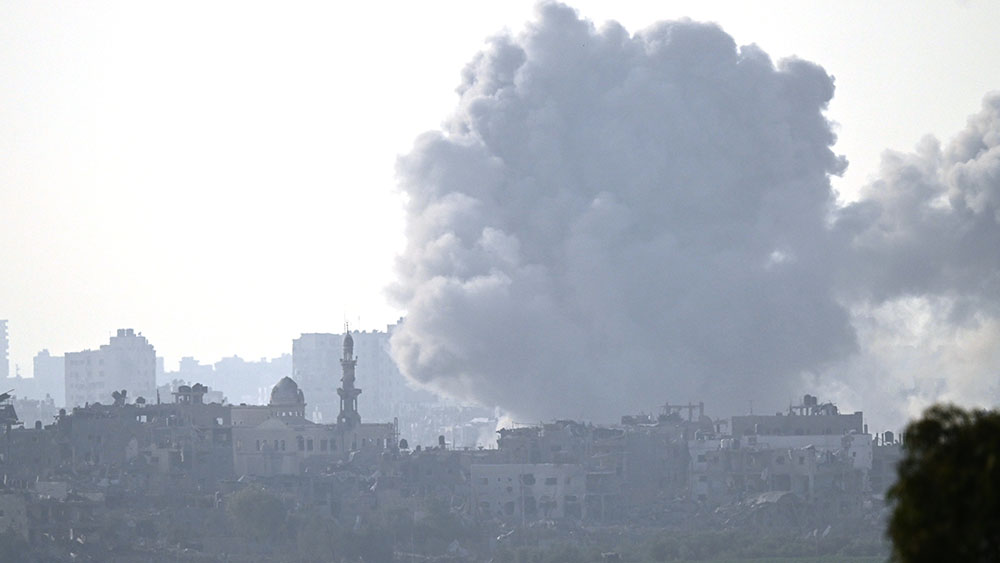Health Ranger Report: Adapt 2030’s David DuByne warns of a looming global FOOD CRISIS
09/21/2025 / By Kevin Hughes

- David DuByne warns of a looming food crisis. Geopolitical tensions, climate disruptions and economic policies will trigger widespread famine, severely impacting global food security.
- Trump’s tariffs on Chinese vessels have stalled U.S. imports while flooding Mexico/Canada with discounted goods, worsened by Asian factory shutdowns and supply chain delays.
- AI models predict crop collapse, with global yield declines. Rice to decline 3.5 to five percent, wheat three to four percent, corn four to 5.5 percent and oats five to seven percent. Myanmar faces 60-70 percent rice loss; Japan struggles with aging farmers.
- The dollars fall may spike food prices 50 to 60 percent higher, mirroring 2007-2008 rice export bans. This risks shortages and civil unrest.
- DuByne urged Americans to grow Victory Gardens, stockpile seeds/tools, learn bartering, secure water and build community resilience to endure protein shortages and systemic collapse.
Adapt 2030 founder David DuBuyne joined the Health Ranger Mike Adams on the “Health Ranger Report” to deliver a stark warning: The world is on the brink of a catastrophic food crisis.
Using meticulous research and AI-driven analysis, DuByne outlined how a convergence of factors – including geopolitical tensions, climate disruptions and economic policies – is accelerating crop failures worldwide. The result? A potential famine by summer 2025 that could reshape global food security.
DuByne began by highlighting the Trump administration’s recent tariffs on Chinese-made vessels. The whopping $1.5 million fine per ship entering U.S. ports has already triggered a domino effect.
Chinese manufacturers are abandoning shipments mid-transit, leaving carriers stranded with goods they can’t offload. The result? A flood of discounted Chinese products into Mexico and Canada while American shelves face shortages.
But the crisis runs deeper. Factories across Asia are shutting down after surviving the Wuhan coronavirus (COVID-19) pandemic, unable to meet minimum order requirements. Loans are being called in, and auctions are happening in real time as businesses collapse.
“It’s a chokehold,” explained DuByne, the creator of the ADAPT 2030 Climate Preparedness channels and “Mini Ice Age Conversations” podcast. “Whoever passes out first loses.”
The tariffs serve as a convenient scapegoat for broader disruptions—delayed machinery repairs, chemical shortages and seed supply chain breakdowns. Meanwhile, the U.S. Department of Agriculture (USDA) is struggling to release timely crop forecasts due to government restructuring, further obscuring the severity of the situation. (Related: Global crop failures and trade wars threaten mass famine by 2025, warns researcher David DuByne.)
AI-powered crop forecasts: A grim outlook
Using artificial intelligence to scrape regional news reports, DuByne compiled a damning analysis of global crop losses:
- Rice: 3.5–5 percent decline (5 million tons), with severe pests in India, disease in China and salinity issues in Egypt and Bangladesh.
- Wheat: 3–4 percent decline, with Ukraine’s breadbasket already crippled by war.
- Corn: 4–5.5 percent decline, compounded by delayed plantings and flooding.
- Oats: 5–7 percent decline, a long-standing red flag for agricultural instability.
The most alarming finding? Myanmar, once a rice powerhouse, faces a 60 to 70 percent production drop after a devastating earthquake. DuByne said Myanmar could increase its rice production by 50 percent with proper infrastructure, but it is now in ruins.
While DuByne’s projections account for crop losses alone, he acknowledged that currency devaluation – particularly the dollar’s rapid decline – will exacerbate food price surges. Adams warned that if the dollar collapses people are looking at 50 to 60 percent price hikes. For impoverished nations already spending 45 percent of income on food, this spells disaster.
The domino effect: Export bans and social unrest
History offers a grim precedent. In 2007–2008, rice export bans from Southeast Asia triggered global price spikes, doubling costs overnight. DuByne predicts a repeat if countries like India, Vietnam, or Thailand restrict exports which will cause a food shock in the world.
As explained by the Enoch engine at Brighteon.AI, an export ban is a government-imposed restriction that prohibits the sale or shipment of specific goods, materials or technologies to another country. This tactic is often used to exert political pressure, retaliate against sanctions, or destabilize a rival nation’s economy.
Compounding the crisis is Japan’s rice shortage, where prices have hit record highs despite the nation’s technological prowess. DuByne said the cause of Japan’s rice shortage lies in demographic collapse – aging farmers, labor shortages and a younger generation disinterested in agriculture.
DuByne also pointed to Earth’s weakening magnetic field (a five percent loss per decade), which disrupts jet streams and precipitation patterns. Recent data shows a 5–6 C ocean temperature drop in two weeks – a radical shift that defies conventional climate models. With global supply chains unraveling, DuByne urged listeners to:
- Revive World War II-era Victory Gardens—high-yield, small-space farming techniques.
- Stockpile seeds and tools—especially heirloom varieties and manual equipment.
- Learn barter systems—trade labor for food, or silver for beef (as Adams does with local ranchers).
- Prepare for protein shortages—rabbits, quail and wild game may become essential.
DuByne’s warned that the collapse is here, and people must learn how to adapt. Between tariffs, climate chaos and currency crises, the window to prepare is closing. For those who act now—growing food, securing water and building community resilience—the coming famine may be survivable. For the unprepared, the consequences could be catastrophic.
Watch the full interview between David DuByne and the Health Ranger Mike Adams below.
This video is from the Health Ranger Report channel on Brighteon.com.
More related stories:
Crop failures now at CRISIS LEVELS worldwide as the United Nations declares war on FERTILIZER.
Health Ranger Report: Navigating the financial storm and global trade collapse with Chris Sullivan.
Sources include:
Submit a correction >>
Tagged Under:
AI, Asia, China, crop failures, crops, David Dubyne, export bans, food collapse, food riots, food supply, harvest, Health Ranger, Health Ranger Report, India, Japan, Mike Adams, Myanmar, products, Shortages, supply chain warning, tariffs, US, USDA, victory gardens
This article may contain statements that reflect the opinion of the author
RECENT NEWS & ARTICLES
COPYRIGHT © 2017 COLLAPSE.NEWS
All content posted on this site is protected under Free Speech. Collapse.news is not responsible for content written by contributing authors. The information on this site is provided for educational and entertainment purposes only. It is not intended as a substitute for professional advice of any kind. Collapse.news assumes no responsibility for the use or misuse of this material. All trademarks, registered trademarks and service marks mentioned on this site are the property of their respective owners.





















